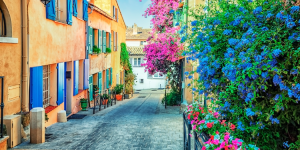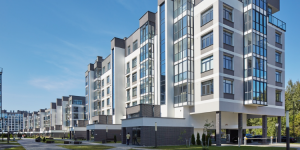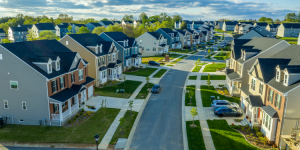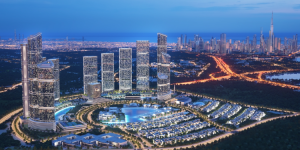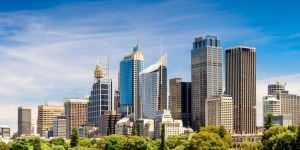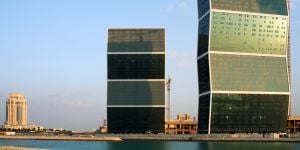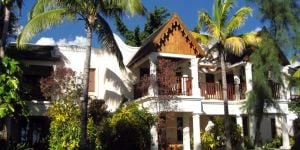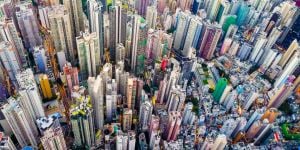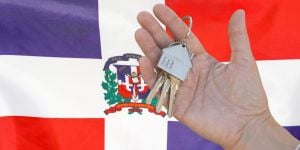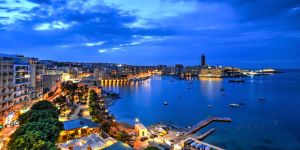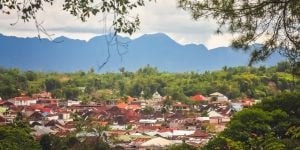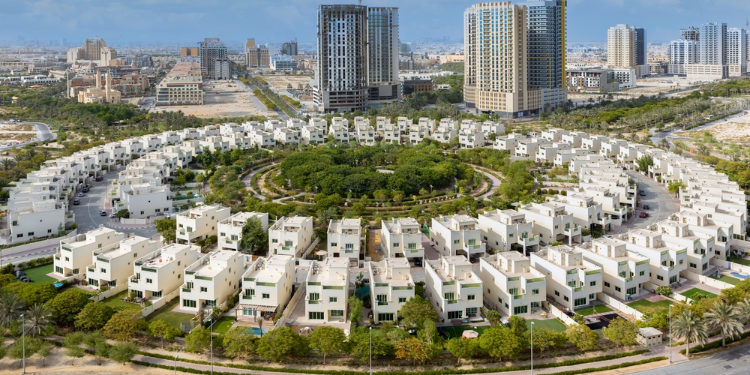
Looking for a new real estate investment? Futuristic cities, artificial islands, and self-sustaining megacities await you as the Gulf States roll out the red carpet for wealthy expatriates. Competing with each other, they are embarking on mega-projects to attract foreign investors. Here's an overview.
Saudi Arabia's ambitious Neom
Championed by Crown Prince Mohammed Ben Salman (MBS) to diversify the national economy and attract wealthy expatriates, the Neom project is a futuristic megapolis in the west of the country. At the heart of this futuristic city is The Line, a "smart", eco-friendly and self-sufficient city. Still under construction, The Line aims to be a mirror of the future. The city consists of gigantic "mirror buildings" designed to be environmentally responsible. The Line would operate without cars, using 100% renewable energy.
On paper, Neom has nothing but benefits. The megalopolis offers wealthy foreign investors unique homes at prices that rival those in Jeddah, the country's second-largest city. Luxury properties generate over a million dollars (3.67 million Saudi dirhams). Like Jeddah, Neom is expected to become the new stronghold for wealthy expatriates. The futuristic city may even dethrone the country's second-largest city. Among expatriates interested in real estate investment in Neom, 42% claim to be tempted by a wealthy property in The Line. However, 19% prefer to invest in Sindalah, the artificial island of super-luxury (part of the Neom project).
But while the government likes to tout the benefits of its real estate megaprojects intended for expats, it is quieter about their excessive financial costs. Neom is estimated to cost $500 billion, financed by the Saudi Public Investment Fund (PIF). Earlier this year, MBS himself recalled the cost of the first phase of The Line: nearly $335 billion. All the more reason for skeptics to worry about future phases, especially since foreign investors are said to be fewer than expected.
Contrary to the state's initial estimates, only 300,000 people will be able to live in The Line by 2030. That's a far cry from the announced 1.5 million. The reason given is the titanic size of the project, which is taking longer than expected. By 2030, only 2.4 kilometers of The Line will have been completed, instead of the 170 kilometers estimated. Nevertheless, the government continues to support Neom financially, even if it means losing 2% of GDP in the budget deficit. Launched in 2016, Neom is one of the pillars of Vision 2030, Saudi Arabia's ambitious economic and social plan.
20 other ambitious real estate projects revolve around Neom. So there's no question of backtracking. MSB is determined to make his country the new El Dorado for wealthy expatriates.
United Arab Emirates (UAE): Attracting wealthy foreigners and assets
While Neom drives up real estate prices with its futuristic megaprojects, Dubai aims to attract and retain more expatriates. The city, a favorite among working expatriates, offers affordable housing for less than $300,000 (less than 1 million UAE dirhams). Dubai's real estate market is focusing on the many expatriate renters who have long been excluded from home ownership.
Dubai's focus on expatriate tenants
After initially focusing on wealthy Golden Visa holders and developments costing more than 2 million UAE dirhams (over $540,000), developers are now paying greater attention to renters who are swelling the pool of potential buyers—a boon for the real estate market. In the sought-after districts of Motor City, Village Circle and Sobha Hartland, homes can be purchased for between 990,000 and 1.5 million UAE dirhams (about $245,000 to $408,000). The lower prices of these homes mean that more expatriate workers can be attracted to Dubai.
However, Dubai's real estate market remains unaffordable for many expatriates. It is estimated that rents in Dubai will increase again this year (by around 20%)—good news for foreign investors but not for tenants. Real estate developers see this as an excellent way to convince them to become homeowners. They are developing payment plans (monthly installments over several years, reduced down payments, etc.) designed to attract skittish tenants.
A simplified Golden Visa
To attract even more foreign investors, the UAE is removing one of the most restrictive conditions for access to the Golden Visa: the minimum investment of one million UAE dirhams. According to the executive, this removal should increase the number of applicants for the Golden Passport: more diverse investors to stimulate the economy, particularly in real estate. Launched in 2019, the UAE Golden Visa program has quickly become a benchmark in the Gulf and North Africa. Originally, applicants had to purchase a property worth at least 2 million UAE dirhams, or 1 million UAE dirhams down payment (50% of the price) for properties purchased with a mortgage or installment plan. The UAE's new measure is part of an opening-up strategy to attract more expatriates. According to the Housearch Investment Index, the UAE is the 5th best country in the world to invest in real estate.


